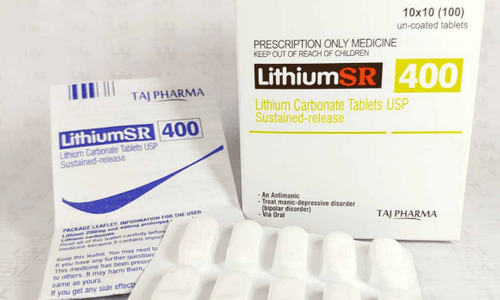This is an automatically translated article.
Aripegis is a 1st generation antipsychotic drug, commonly used in the treatment and support of some psychotic diseases such as schizophrenia and autism spectrum disorder...
1. What is Aripegis?
Aripegis contains the main ingredient Aripiprazole 10mg, this active ingredient has the ability to regulate Dopamine and Serotonin levels in the brain. Word quiz helps treat some mental disorders with high efficiency.2. Indications and contraindications
2.1. Indications Aripegis is usually indicated in the following cases:
Patients with schizophrenia or bipolar disorder. Used in adjuvant therapy in major depressive disorder. Used in the treatment of autism spectrum disorders. Treatment of patients with Tourette's syndrome. 2.2. Contraindications Aripegis is contraindicated in patients with known hypersensitivity to Aripiprazole or any of its ingredients.
3. Dosage and usage
Aripegis is a drug that is used orally with the reference dose as follows:
3.1. Aripegis use for patients with schizophrenia The usual dose of Aripegis: From 10-15mg/day, taken once and do not increase the dose before 2 weeks because this is the time it takes for the body to balance the steady state. determined.
Aripegis Dosage in Special Populations:
Co-administration with CYP3A4 Inhibitors: When Aripegis is co-administered with ketoconazole, the dose of Aripegis should be reduced to half the usual dose and may be increased again upon discontinuation of the inhibitor. inhibit CYP3A4. Co-administration with CYP2D6 Inhibitors: When Aripegis is co-administered with drugs such as Quinidine, Fuoxetin or Paroxetine, the dose of Aripegis should be halved and increased again upon discontinuation of the CYP2D6 inhibitor. Co-administration with CYP3A4 Inducers: When Aripegis is co-administered with drugs such as Carbamazepine, a doubling of Aripegis (up to 20-30mg) is required. Thereafter, when carbamazepine is discontinued, the dose of Aripegis should be reduced to 10-15 mg/day. 3.2. Patients with bipolar mania Patients should start with 30 mg once daily. The dose may then be reduced to 15 mg based on tolerability.
4. Side effects
During the use of Aripegis, users may experience some of the following side effects:
Common side effects: Insomnia, anxiety, restlessness, extrapyramidal syndrome, tremor, headache. In some cases, there are feelings of drowsiness, dizziness, blurred vision, constipation, indigestion, nausea, vomiting, increased salivation and fatigue. Uncommon side effects: Hyperprolactinemia, hyperglycemia, depression, tardive dyskinesia, dystonia, restless legs syndrome, diplopia, photophobia, tachycardia, orthostatic hypotension and possible hiccups. In addition, some side effects of unknown frequency include:
Leukopenia, agranulocytosis, thrombocytopenia and occurrence of allergic reactions. Coma, increased osmotic pressure and diabetic ketoacidosis, hyponatremia. Loss of appetite, suicidal thoughts or committing suicide. Uncontrollable actions such as eating, shopping, aggression, agitation, anxiety, neuroleptic malignant syndrome. Presence of generalized convulsions, serotonin syndrome, ophthalmic dystonia, speech disturbances, sudden death, torsades de pointes, ventricular arrhythmias, cardiac arrest or bradycardia. Venous thrombosis, hypertension, laryngospasm, pharyngeal spasm, and pancreatitis occur. Diarrhea, digestive disorders, hepatitis or liver failure, jaundice, hair loss, hirsutism, DRESS syndrome, myalgia, muscle stiffness and urinary incontinence.
5. Drug interactions
Because Aripegis acts primarily on the central nervous system, patients should be cautious when using with alcohol and other drugs that affect the central nervous system. Note when using Aripegis with some antihypertensive drugs because it will increase the effect of blood pressure drugs. Pay attention to dose adjustment when using Aripegis with antipsychotic drugs. To avoid interactions, before being prescribed Aripegis, patients should inform their doctor about all the drugs they are using, including dietary supplements. The doctor will base it on that to prescribe the appropriate Aripegis.
6. Be careful when taking medicine
Aripegis may worsen depression or unusual changes in behavior in patients with major depressive disorder and should be carefully monitored. Aripegis may cause orthostatic hypotension and should be used with caution in patients at risk or in whom transient episodes of hypotension cannot be tolerated. Use caution when using Aripegis for people with heart disease, myocardial infarction, ischemic heart disease or certain problems that can lead to low blood pressure. Use with caution in patients with Parkinson's disease because Aripegis may exacerbate movement disorders. Use with caution in people at risk of convulsions such as a history of epilepsy, brain injury, alcoholism, or concomitant use with drugs that lower the seizure threshold. Aripegis should only be used by pregnant and lactating women when prescribed by a doctor with a suitable dose. Above is all information about Aripegis drug, patients need to carefully read the instructions for use, consult a doctor / pharmacist before using. Absolutely do not arbitrarily buy Aripegis at home because there may be unwanted side effects.













